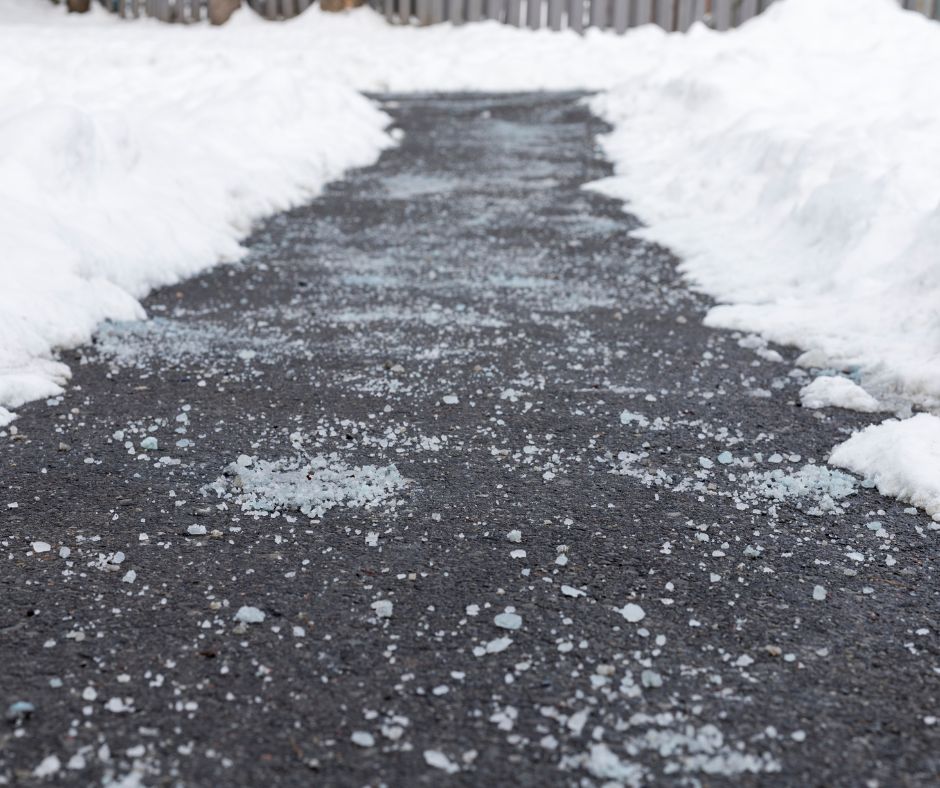With temperatures dropping and snow falling frequently, you’ll likely see a lot of salt on roads, parking lots, and sidewalks.
We all want these surfaces to be ice-free and safe for walking and driving. However, if you’re responsible to look after one of these items, you may be concerned about potential damage from the salt.
Is that concern justified? Why bother using salt in the first place?
Why do we spread salt in Vancouver during the winter?
There are multiple reasons why salt is a go-to resource to combat icy conditions. Road crews often use it before a storm to prevent or slow ice formation, keeping roads safe and open as snow falls. Similarly, building owners will spread it on their sidewalks and parking lots during evening hours to keep these areas safe for pedestrians and drivers.
Once the snow falls or ice forms, salt can also be used to melt accumulations. If there’s not a lot of snow or ice, the salt may address the problem all on its own, melting the hazards and leaving behind a slip-free surface. Heavier build-ups will require some mechanical action, but even here salt proves helpful – allowing clearers to dislodge and remove snow and ice more easily.
How does salt affect asphalt?
If your road, driveway, or parking lot is asphalt, salt proves to be an effective, economical choice to address your icy issues.
Hot-mix asphalt is specifically designed to endure freeze-thaw cycles. The combination of stones, sand, and petroleum not only provides a more durable driving surface but also proves resilient in the face of salt and other de-icing products.
In other words, feel free to salt your asphalt. It won’t do any damage to this substrate.
How does salt affect concrete?
It’s a whole different story if your paved surfaces are concrete. When it comes to concrete driveways or concrete sidewalks the answer is different.
Unlike asphalt, concrete can’t withstand the acidic properties of rock salt. Over time, salt will weaken the bonds that keep concrete together, causing it to deteriorate.
Concrete structures – like bridges and overpasses – typically have embedded steel, which is also prone to degradation from salt. Once cracks form, salt will heighten the risk that these steel components will corrode, which results in further damage and potential structural concerns.
Moreover, since concrete freezes more quickly than other substrates (like asphalt), it requires more regular de-icing to prevent slip hazards.
Burnaby Blacktop Offers Thoughtful Snow Removal and Salting Services
Our name says it all: Burnaby Blacktop cares first and foremost about the condition of your pavement. We understand the slip hazards you’re facing. That’s why we offer de-icing and salting services, taking care to recommend products that suit your particular type of pavement.
Reach out today: we’d love to help you protect the people using your parking lots and sidewalks without doing damage to the integrity of these surfaces. It’s our pleasure to give you peace of mind, knowing that your patrons and your pavement will be equally protected.
